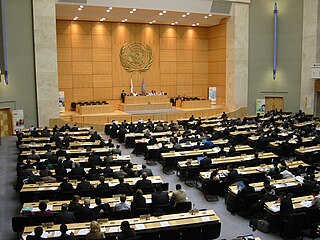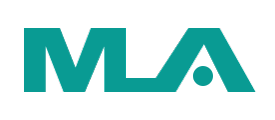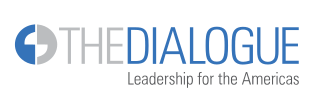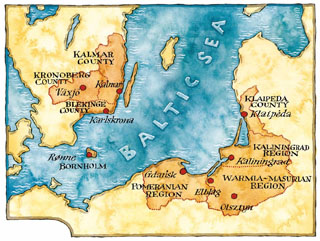Related Research Articles

The World Summit on the Information Society (WSIS) was a two-phase United Nations-sponsored summit on information, communication and, in broad terms, the information society that took place in 2003 in Geneva and in 2005 in Tunis. WSIS Forums have taken place periodically since then. One of the Summit's chief aims is to bridge the global digital divide separating rich countries from poor countries by increasing internet accessibility in the developing world. The conferences established 17 May as World Information Society Day.

The United Nations Information and Communication Technologies Task Force was a multi-stakeholder initiative associated with the United Nations which is "intended to lend a truly global dimension to the multitude of efforts to bridge the global digital divide, foster digital opportunity and thus firmly put ICT at the service of development for all".

The Medical Library Association (MLA) is a nonprofit educational organization with more than 3,400 health-sciences information professional members.

The Intergovernmental Group of Twenty-Four on International Monetary Affairs and Development, or The Group of 24 (G-24) was established in 1971 as a chapter of the Group of 77 in order to help coordinate the positions of developing countries on international monetary and development finance issues, as well as and to ensure that their interests are adequately represented in negotiations on international monetary matters. Though originally named after the number of founding Member States, it now has 28 Members. Although the G-24 officially has 28 member countries, any member of the G-77 can join discussions.

The G20 or Group of 20 is an intergovernmental forum comprising 19 sovereign countries, the European Union (EU), and the African Union (AU). It works to address major issues related to the global economy, such as international financial stability, climate change mitigation and sustainable development.

The Space Generation Advisory Council (SGAC), in support of the United Nations Programme on Space Applications, is a non-governmental organization and professional network whose goal is to convey the perspectives of students and young space professionals to the United Nations (UN), space industry, space agencies, and academia.

The Internet Governance Forum (IGF) is a multistakeholder governance group for policy dialogue on issues of Internet governance. It brings together all stakeholders in the Internet governance debate, whether they represent governments, the private sector or civil society, including the technical and academic community, on an equal basis and through an open and inclusive process. The establishment of the IGF was formally announced by the United Nations Secretary-General in July 2006. It was first convened in October–November 2006 and has held an annual meeting since then.
The Commonwealth Foundation (CF) is an intergovernmental organisation that was established by the Commonwealth Heads of Government in 1966, a year after its sister organisation, the Commonwealth Secretariat. The Foundation is located at Marlborough House in London, a former royal palace which was assigned for the use of these Commonwealth institutions by Her Majesty Queen Elizabeth II, the former Head of the Commonwealth. As the Commonwealth agency for civil society, the Foundation is funded by 49 member states to support participatory governance through its programmes. The Foundation provides resources, grants and access to platforms to encourage better engagement between civil society and institutions of governance. Membership of the Commonwealth Foundation is voluntary and is separate from membership of the Commonwealth of Nations.

The Inter-American Dialogue, also known as the Dialogue or IAD, is a U.S.-based think tank in the field of international affairs primarily related to the Western Hemisphere. Headquartered in Washington, D.C it intends to "foster democratic governance, prosperity, and social equity in Latin America and the Caribbean". The Dialogue's research areas focus on the rule of law, education, migration, remittances, energy, climate change and extractive industries.

The IBSA Dialogue Forum is an international tripartite grouping for promoting international cooperation among these countries. It represents three important poles for galvanizing South–South cooperation and greater understanding between three important continents of the developing world namely, Africa, Asia, and South America. The forum provides the three countries with a platform to engage in discussions for cooperation in the field of agriculture, trade, culture, and defence among others.
The Forum of Federations is an international organization based in Ottawa, Ontario, Canada. It develops and shares comparative expertise on the practice of federal and decentralized governance through a global network. The Forum and its partners comprise a global network on federalism.

In England, regional ministers were appointed from 2007 on a part-time basis as part of Her Majesty's Government. Each minister had other departmental responsibilities, as well as specific responsibilities for one of the English regions. Their stated role was "to provide a clear sense of strategic direction for the nine English regions and to help strengthen their links with central government."

The Euroregion Baltic (ERB) refers to a cross-border Euroregion in the south-east of the Baltic Sea Region, consisting of eight regions of Denmark, Lithuania, Poland, Russia, and Sweden. On 2 March 2022, the ERB's Executive Board suspended Russia's membership, in response to Russia's invasion of Ukraine.
The Regional Forum on Environment and Health in Southeast and East Asian Countries is a global framework for action provided by Agenda 21 of the 1992 United Nations Conference on Environment and Development; the Johannesburg Plan of Implementation of 2002 World Summit on Sustainable Development; the Millennium Development Goals of the United Nations and the recommendations of the fifth Ministerial Conference on Environment and Development in Asia and the Pacific on enhancing the environmental sustainability of economic growth. The second Ministerial Regional Forum was held 14–16 July 2010 in Jeju Province, South Korea. The forum is held every three years; the first was in Bangkok in August 2007.

The Arctic policy of the United States is the foreign policy of the United States in regard to the Arctic region. In addition, the United States' domestic policy toward Alaska is part of its Arctic policy.
Sea transport accounts for most of the European Union's external and internal commerce. The EU is the world's third-largest importer of fisheries and aquaculture products and the fifth-largest producer. Maritime borders make up more than 70% of the Union's external borders, and hundreds of millions of travelers pass through European ports each year. The security of Europe's energy supply is heavily reliant on marine transit and infrastructure. The significant expansion of EU Member States' fleets, as well as suitable port infrastructure, contribute to a well-functioning energy market and supply security, and hence to European residents' and the European economy's overall well-being. The Arctic region is therefore a vital new area for the EU to work towards and a new strategy for the Arctic region that matches with the European Green deal was established in late 2021.

The Bali Process is an official international forum, established in 2002, to facilitate discussion and information sharing about issues relating to people smuggling, human trafficking, and related transnational crime and appropriate responses to these issues.
The White House Rural Council was an entity within President Obama's Domestic Policy Council of the Executive Office of the President of the United States. The council was formed on June 14, 2012, and was intended to assist low-income residents residing in rural communities as an effort to build on the administrations rural economic strategy by promoting economic prosperity and quality of life. The Council was overseen by the Secretary of Agriculture and the members include the leaders of 25 executive agencies. President Trump dissolved the White House Rural Council on April 25, 2017 with Executive Order 13790.

The Alliance for Financial Inclusion (AFI) is a policy leadership alliance owned and led by member central banks and financial regulatory in developing countries with the objective of advancing financial inclusion.

The Arctic Economic Council (AEC) is an independent international business membership organisation representing companies that work with and within the Arctic. The AEC advocates sustainable economic development in the region and represents a business perspective on sustainability. The AEC is the only regional business organisation in the Arctic and has members from all eight Arctic states.
References
- ↑ [ dead link ]
- ↑ "Our Governors". Western Governors Association. Retrieved 7 December 2021.